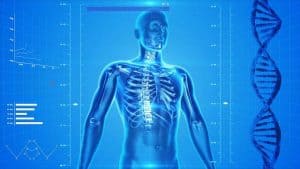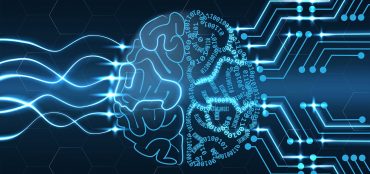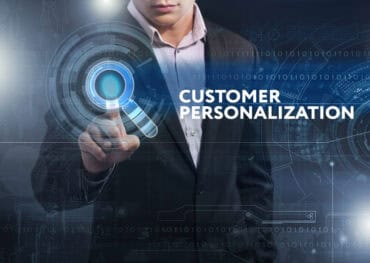
AI applications in healthcare are wide-ranging from customized predictive care based on patient data to the automation of administrative processes.
The revolution in communication technology has had a transformative impact on our lives. But the technological revolution of our time isn’t just changing the way we do business and stay in touch with one another – it’s radically changing the way we look after each other, too.
The advent of artificial intelligence (AI), with new advances being made all the time, holds particular promise for the future of the healthcare industry. Given AI’s ability to perform intelligence-based tasks, it’s not hard to see how this might be applicable to the delivery of healthcare.
See also: Udacity Launches AI For Healthcare Program
Big-name tech firms are plowing large-scale investment into AI. They’re devoting huge resources to exploring how it might be used in the healthcare sector. AI itself is nothing new – it’s an idea with a history stretching back to the 1950s. The last few years, though, have seen the technology come on in leaps and bounds. Now, we stand on the cusp of an AI revolution in healthcare, with real potential to save and improve the quality of many lives.
So how can we expect AI to transform the way healthcare is delivered? Here, we’ll take a closer look at some of the key aspects.
The data revolution
There’s been a lot of hype about ‘big data’ and how it could change life as we know it. From retail to crime prevention, the implications of big data are wide-ranging. Healthcare also generates huge amounts of data, from patient histories to test results. However, part of the problem here is that the data can often be ambiguous, fragmented, or perhaps subjective rather than clear-cut. This can complicate matters considerably.
AI could help clear up these ambiguities and subjectivities, processing data much more efficiently. This is why it could potentially revolutionize patient diagnostics. Intelligent use of AI could allow for earlier and more precise diagnoses. This could lead to the creation of more bespoke treatment programs devised to suit individual patients’ specific medical needs. It could also provide a more granular picture of lifestyle factors and their implications for patients’ health.
However, the ethics of data usage and storage are complex. If they are to consent to their data being collected and used in this way, patients will need to be reassured about its security and confidentiality.

Predictive care and understanding lifestyle factors
Although AI is highly unlikely to replace human doctors, the technology could bring about drastic changes in predictive care and diagnosis. As we’ve already noted, AI can offer us new and more detailed insights into how our general lifestyle is likely to impact on our health. We know that our living conditions, diets, exercise routines (or lack of them), and genetic make-up can affect our health in different ways. AI could help us understand this much better.
With the new insights provided by AI – and its ability to process huge quantities of data – doctors could also be better placed to recommend predictive care measures. By addressing certain lifestyle or other factors, predictive care could reduce the risk of patients developing particular conditions down the line. This could do a great deal to enhance the quality of life, as well as extending life expectancy.
The new generation of business communications technologies, meanwhile, is helping experts share and discuss these vital new discoveries uncovered with the help of AI. During the Covid-19 pandemic, for example, medical experts around the world have used video conferencing to combat the virus and to understand the lifestyle factors that might leave people more at risk.
Simplifying admin
We discussed earlier that healthcare provision inevitably involves vast quantities of information. This also results in a lot of admin and paperwork. Getting this done ties up resources that could be better used elsewhere. AI can process vast amounts of data rapidly. Its use could then drastically simplify admin in the healthcare sector and make it much more efficient. In doing so, it could free up health workers to spend their time and energies in more useful areas. Not to mention saving money that could be spent on the direct provision of healthcare.
Much patient data is already stored digitally, so introducing AI in this area should be relatively straightforward. We’ve already discussed the ethical issues around patient data. That means healthcare providers will need to make sure robust protections are in place. Patients have a right to expect that their personal data is kept secure and used responsibly. They’re also correct to expect it will only get used for relevant purposes. If these qualms are addressed, however, the streamlining enabled by AI could deliver large-scale savings. Such savings could be crucial in easing the strain on healthcare budgets.




























